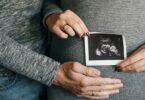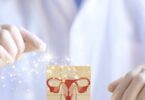According to a recent study, nutritional imbalances could be responsible for many cases of unexplained infertility.
An Italian team of scientists around MD Marco Noventa examined the dietary patterns of 257 healthy Italian women aged between 18 and 40 years. Among these, 198 women were affected by unexplained infertility. The researchers looked for abnormalities in lifestyle and both micronutrient and macronutrient intake and compared the data between subfertile and fertile women.
After analysis, the authors of the study found that women affected by unexplained infertility, when compared with those with spontaneous pregnancy, showed higher weight, BMI, waist circumference, and lower regular daily physical activity.
In their daily diet, subfertile women seemed to consume more sugars and saturated fatty acids and their vitamin intake was below the recommended daily dose for all the considered vitamins with the exception of vitamin B6. Importantly, fertile as well as subfertile women showed inadequate intake of folic acid and vitamin D.
In a second phase of the study, the women were offered the opportunity to receive a prescription for a 3-month daily dietary supplementation prior to commencing IVF treatment.
After analysis of IVF treatment outcome, the scientists observed that patients without identified dietary abnormalities benefited from iron and folic supplementation alone, while patients with minimal dietary imbalance significantly benefited from multi-micronutrient supplementation, achieving a success rate of patients without nutritional imbalances. However, in cases of severe dietary abnormalities, long-term dietary education and supplementation encompassing inositols was needed to achieve improvement of ART outcome.
In conclusion, the results of the study show that when compared with fertile women, patients having unexplained infertility frequently present with significant abnormalities in dietary habits. These differences range from minimal micronutrient imbalances (avoidable with dietary supplementation) to severe combined macronutrient and micronutrient imbalances frequently associated with obesity (partially amendable by inositol supplementation and frequently requiring long-term dietary education before establishment of fertility).
What does this mean for you? If you suffer from unexplained subfertility, make sure you discuss your dietary pattern with your doctor, have your micronutrient status analyzed and are open to proposed changes in your dietary pattern as well as prescribed supplementation – small as these interventions might seem, they can have a major (positive) impact!
References
Marco Noventa, Michela Quaranta, Amerigo Vitagliano, Vescio Cinthya, Romina Valentini, Tania Campagnaro, Roberto Marci, Rossana Di Paola, Carlo Alviggi, Michele Gangemi, Carlo Saccardi, Giovanni Battista Nardelli, and Salvatore Gizzo. May Underdiagnosed Nutrition Imbalances Be Responsible for a Portion of So-Called Unexplained Infertility? From Diagnosis to Potential Treatment Options. Reproductive Sciences 2016, Vol. 23(6) 812-822







